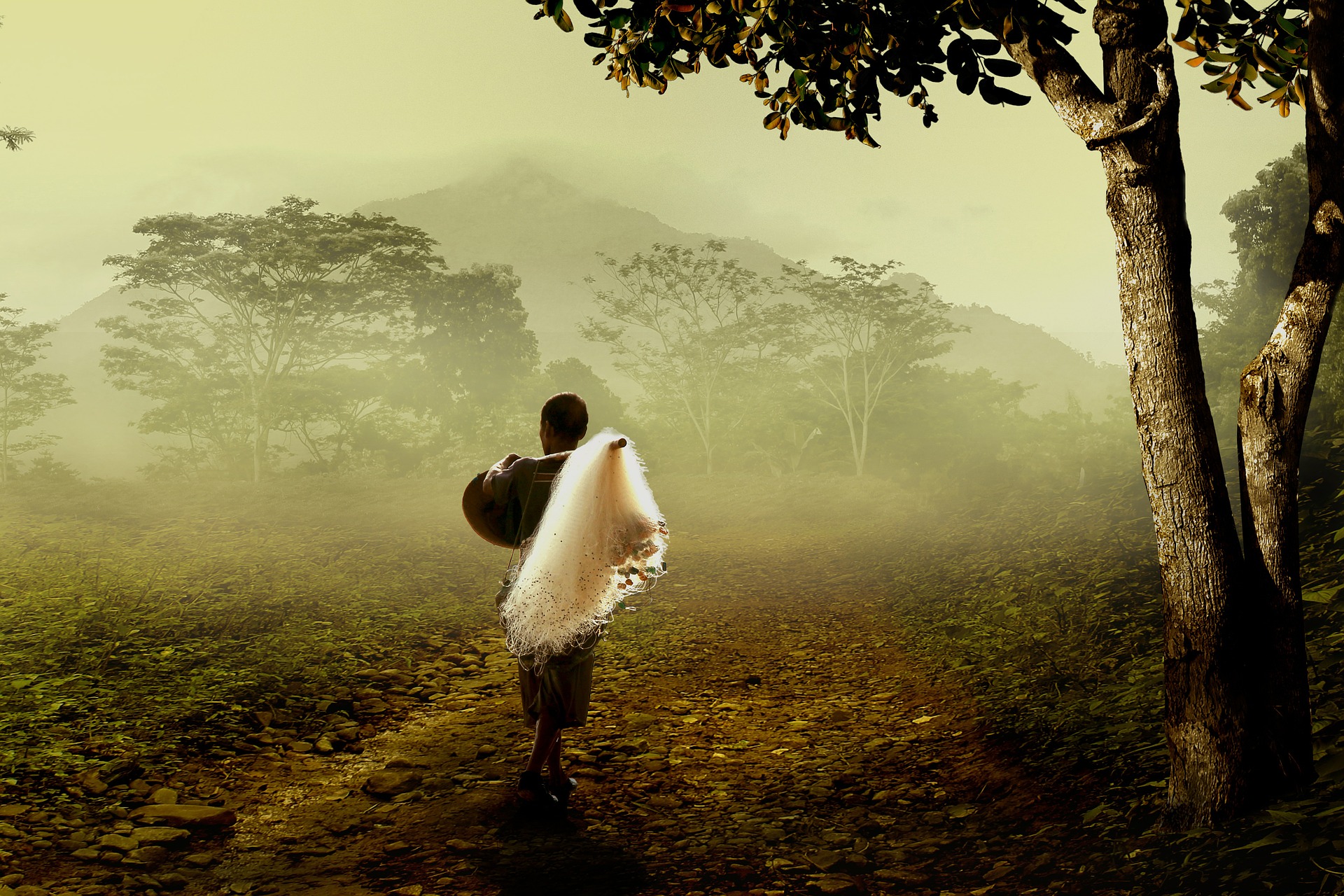Psychotherapist and philosopher Erich Fromm (1900-1980) called the longing for nature biophilia. This is people’s love for nature, for the living. The term comes from the Greek and literally means “love of life or living systems.”
After Fromm’s death, the evolutionary biologist and professor at Harvard University, Edward O. Wilson, adopted this term and introduced the “biophilia hypothesis.” Wilson spoke about the “human urge to affiliate with other forms of life,” in other words, about our connection with nature. It is a connection that has evolved over millions of years. Human beings come from nature. We evolved and interacted with nature. We should therefore be considered a part of nature, just like all other life forms. The same life force in us is also in animals and plants. We are a part of the “web of life,” as Wilson expressed it.
The biophilia effect stands for wilderness and the conception of nature, for natural beauty and aesthetics, and for breaking free and healing.
The lessons of wilderness
Scientists call what goes on in humans when they’re in the wilderness an immediate conscious experience (ICE). The main focus here is on the psychological aspects of the experience of nature and wilderness. It’s about what individuals experience personally when they come into contact with nature, about what’s going on inside, what states of consciousness they are experiencing, what new ways of thinking and seeing they develop, how they find new solutions to problems or learn to deal with physical or psychological stresses. Whatever happens in the consciousness when a human being is immersed in the wilderness, environmental psychologists call it an immediate conscious experience in nature.
On top of perceiving the physical reality of our environment with our five senses, we humans also tend to derive additional meaning from the impressions we see, hear, smell and feel. This is true for our social environment as well, which we analyze, trying to make sense of everything that goes on around us. In general, the human species is the only one on this planet that searches for so much sense and meaning in life — and in nature. We can interpret nature and find metaphors and symbols that “tell” us something. It’s a very individual process. Depending on our background or our current state of mind, reading nature can differ completely from person to person and moment to moment.
A seedling can, for example, symbolize our own desire for children, a growing business idea, or a new life plan. A mighty tree standing in a wild place, defying wind and weather, can trigger associations with steadfastness. I recently saw a perennial growing out of a sidewalk grate. It took root in a small handful of soil that had collected there, and it was in full bloom. I suddenly thought how it’s possible to make so much from so little, when there is a will. This association came to mind while I was looking at the determined perennial.
Or think of a sprouting willow tree after a clear-cutting. The tree defies its destiny, revitalizes itself even after a radical interference in life, and attempts a new beginning. It grows above and beyond the harm done. Those who are in a similar situation, wanting to leave old wounds behind and to feel revitalized, might find solidarity with this unfaltering willow and feel inspired to find new energy. The willow may be whispering, “You’re not alone. I made it. You can rise again, too.” The symbolism of a damaged, downright mutilated tree that defies its destiny and maintains its will to live is intense. It may also be relevant in cases of physical trauma — for example, if a person has to cope with a physical impairment or negative physical changes and wants to say yes to life, just as the mutilated willow does.
The value of retreating into nature
Nature offers us impressions that we can see and interpret as symbols and, at the same time, it offers us a place of retreat, where self-reflection is accessible. It thus supplies us with the material and, at the same time, the space to reflect on it. The value of the wilderness experience lies in the “being away;” that is, being elsewhere. When we get out of the usual everyday experiences and find ourselves in a completely unfamiliar, inspiring environment, we gain a little distance from our problems.
Rachel and Stephen Kaplan, environmental psychology professors at the University of Michigan, identified “being away” as one of the most important mechanisms through which our nature experience affects our psyche and gives our soul space. These conclusions came from their numerous studies with test subjects who found a retreat in nature and then reported on what the wilderness did for them. “Being away” also means having a time-out from society, escaping human civilization for a while, alone or in selected company. It represents being away from consumerism, away from the digital world, away from the expectations of others, away from the performance pressure and the corset into which modern life often squeezes us. It signifies being far away from a world in which we must constantly fit a certain image and in which we are force-fed what it means to be a “good” person, a “well-adapted” person, a “hardworking” person, or a “productive” person.
“Being away” means we are in an environment where we can be as we are. Plants, animals, mountains, rivers, the sea — they are not interested in our productivity and performance, our appearance, our paycheck, or our mental state. We can be among them and participate in the network of life, even if we are momentarily weak, lost, or bubbling over with ideas and hyperactivity. Nature does not send us utility bills. The river in the mountains does not charge us for the clear, clean water we get from it when we wander along its banks or camp there. Nature does not criticize us. “Being away” means freedom from being evaluated or judged, and escaping from pressure to fulfill someone else’s expectations of us.
“Being away” is the ideal way to experience the therapeutic biophilia effect of nature.





